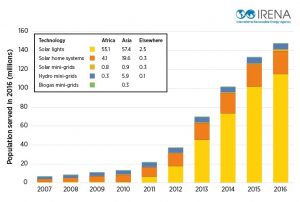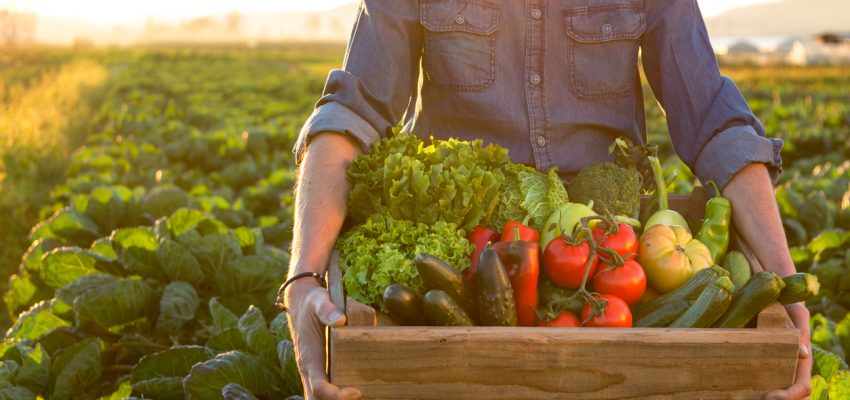Living off-grid has come to mean more than just removing yourself from the energy grid. Now growing your own food, using renewable energy and supplying your own water are all part of the off-grid experience. When you look at the money saved by living off-grid, it’s no wonder it’s a growing movement.
Consulting company Accenture forecast that 12% of Americans will be living off-grid by 2035, and 11% in Europe.
Image Credits: Irena.org

sustainable living
Living off-grid takes a bigger initial investment in renewable energy and water storage systems. It takes work too if you intend to grow your own food. However, the savings are well worth the investment! Knowing you’re living sustainably and getting fresh, organic food is a healthier way to live. There are other advantages too:
You can be your own boss
Vastly reducing your monthly bills means you have to generate less income. This can spell early retirement or simply fewer working days. The independence that living off-grid affords is a real plus.
Live Debt-free
Most people have substantial debts. From college loans to mortgages and the challenges of raising families, most people can’t manage without accruing large debts. On occasion, for those with unmanageable debts, this leads to them looking to firms like Stone Rose Law for assistance, to help find solutions to cope with their financial challenges. However, by living in small homes that are self-sustaining, we can really work towards financial independence and a debt-free existence.
More Sustainable Lifestyle
While they don’t need to be, off-grid homes are generally smaller. Reducing your footprint and using renewable energy means you aren’t using fossil fuels. Growing your own food and being self-sufficient means you can compost your organic waste and recycle so you’re living a more sustainable lifestyle.
Learning New Skills
Growing your own food, making herbal medicines, making your own cleaning products, building, gardening and chopping wood are just some of the skills you can learn. Learning to make, build and repair everything yourself means you improve your skill set and can it be enormously satisfying.
Are your Cut Out for Off-Grid?
This lifestyle is very demanding, and it may not be for everyone. If you are wondering if it’s right for you, there are a few things you can try to see if it suits your family.
Get rid of all your unnecessary possessions and expenses. Cut down on groceries and spending and simplify your life by decluttering. Clear as much debt as you can and start saving money.
Making the transition to living off-grid is not cheap. You need to buy land, and you need to set up your homestead. Move to a small rural town and rent a cabin to see if you’re suited to the outdoors. Get in touch with others who live off-grid for ideas, advice and information. Here are some of the ways for successfully living off the grid.
Living off-grid doesn’t mean you have to give up technology or modern conveniences, but it is a huge lifestyle shift. It takes work, perseverance and has a very big learning curve, but living independently, without debt and working less holds many rewards. Living off-grid can also mean living more sustainably and more healthily as you forgo most processed foods.





Pingback: The Best Fishing Spots on Property for Sale in Northern Ontario | Land Listings In Canada